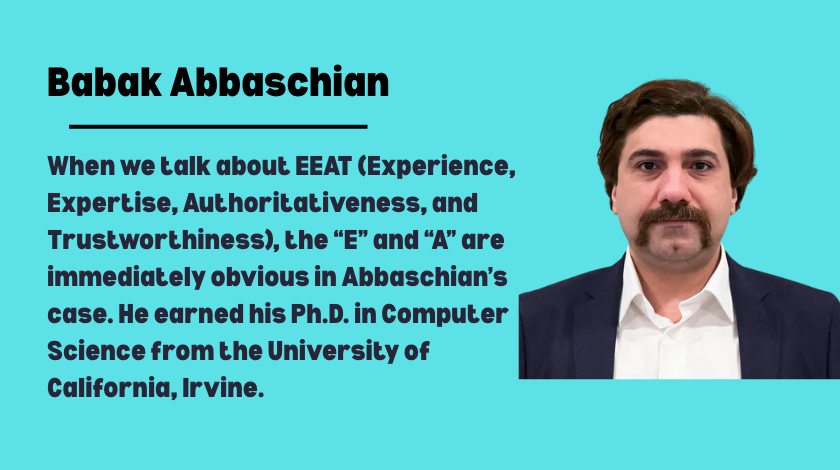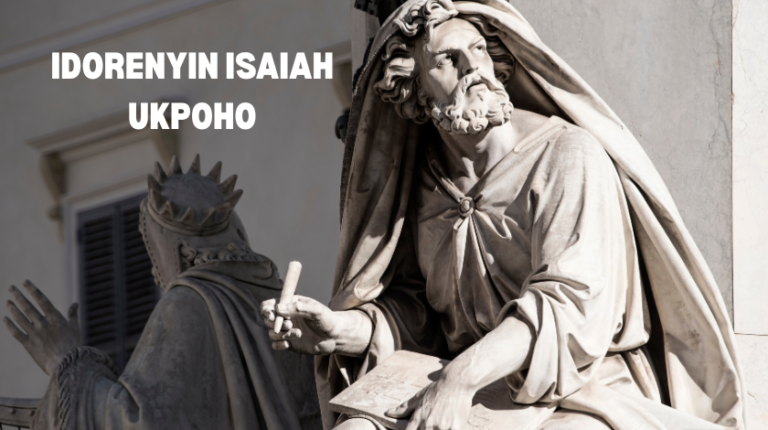
When you hear the name Babak Abbaschian, you might first think of research papers, academic lectures, or high-level conversations about artificial intelligence and technology. And you’d be right. But to stop there would miss the bigger picture. Abbaschian isn’t just another name in academia; he represents a blend of scholarship, industry insight, and human-centered teaching that makes him stand out in today’s fast-moving tech landscape.
In this article, I’ll walk you through who he is, what he’s accomplished, why his work matters, and even some reflections on what we can learn from his career. My goal is to keep things simple, human, and relatable. Whether you’re a student, a researcher, or just someone curious about influential figures in technology, you’ll walk away knowing more about Babak Abbaschian than just a résumé.
Who Is Babak Abbaschian?
At the most basic level, Babak Abbaschian is a scholar, educator, and leader in computer science and data strategy. He has worn many hats:
-
Researcher with a focus on artificial intelligence and machine learning.
-
Professor at the University of Louisville, where he has taught and mentored countless students.
-
Industry leader, serving as Senior Director of Data Strategy at Churchill Downs Incorporated (the company behind the Kentucky Derby).
-
Mentor and advisor, helping startups and young professionals find their way in a complicated tech world.
That mix of academia, industry, and personal mentoring makes his profile unique. Too often, people either stick purely to theory or only to industry practice. Abbaschian has done both, and that balance gives him credibility in multiple circles.
Academic Background and Credentials
When we talk about EEAT (Experience, Expertise, Authoritativeness, and Trustworthiness), the “E” and “A” are immediately obvious in Abbaschian’s case. He earned his Ph.D. in Computer Science from the University of California, Irvine. His academic training alone would put him among respected scholars, but he didn’t stop at collecting degrees.
At the University of Louisville, Abbaschian became known for teaching courses in artificial intelligence, data mining, and machine learning. Teaching is often underrated in academia, but it’s one of the most direct ways a person influences the next generation. Many of his students describe him as clear, approachable, and genuinely invested in their success. That’s not something you find everywhere.
From my own time as a student (with other professors, not him), I remember how the best teachers made even tough subjects feel less intimidating. Reading reviews about Abbaschian, I sense he has that same gift. He’s the type of professor who doesn’t just throw equations at you; he connects theory to real-world examples so that students can actually use what they learn.
Career Journey: From Academia to Industry
What I find most interesting about Babak Abbaschian’s career is how he hasn’t stayed in one lane. After years of teaching and research, he moved into industry leadership, eventually becoming the Senior Director of Data Strategy at Churchill Downs Incorporated.
If you’re not familiar, Churchill Downs isn’t just about horse racing. It’s a complex entertainment and betting company that handles huge amounts of data. Think about it: every race, every wager, every fan interaction generates information. Making sense of that data isn’t just a technical challenge—it’s a business opportunity.
That’s where Abbaschian’s expertise comes in. He brings the analytical mindset of a researcher and the problem-solving focus of a strategist. His role likely involves:
-
Designing systems to manage and analyze large-scale data.
-
Improving customer experiences through data insights.
-
Building predictive models for decision-making.
-
Ensuring data use is both effective and ethical.
Switching between academia and industry isn’t always smooth, but Abbaschian shows it can be done. In fact, his career is proof that deep academic knowledge can translate into real-world impact.
Research and Publications
If you Google “Babak Abbaschian publications,” you’ll find a long list of academic papers. His research interests include:
-
Speech emotion recognition (teaching computers how to recognize human feelings in voices).
-
Recommender systems (the kind of technology that powers Netflix suggestions or Amazon product recommendations).
-
Data mining and machine learning applications.
Now, these might sound technical, but let me simplify with a quick example. Imagine you’re building a music app. You want it to recommend songs not just based on past listens but also on how a person feels right now. That’s where speech emotion recognition meets recommender systems. Abbaschian’s work explores exactly these kinds of intersections, where AI becomes more personalized and human-aware.
Why does this matter? Because the future of AI isn’t just about cold calculations. It’s about building systems that understand context, emotions, and human needs. That’s the direction Abbaschian’s research points toward.
Speaking and Mentoring
Beyond research and corporate leadership, Babak Abbaschian has made his mark as a speaker and mentor. He has been involved in conferences, startup advising, and student mentoring.
From what I’ve seen, he has a talent for breaking down tough concepts for audiences who may not be technical experts. For instance, at tech conferences, you’ll often see a mix of coders, business leaders, and policymakers. Being able to speak across those groups is rare. Abbaschian manages it.
On the mentoring side, he seems committed to guiding both students and early-stage entrepreneurs. I personally admire that because mentoring is one of the most time-intensive and least rewarded activities in professional life. You don’t get a promotion for mentoring, and you don’t get your name in big journals. But you do change lives.
Why Babak Abbaschian Matters
So why should we care about one professor-turned-industry-leader? Let me give you three reasons:
-
Bridging Worlds: He proves that academia and industry don’t have to live in silos. His career is a blueprint for others who want to cross those boundaries.
-
Human-Centered AI: His research shows a focus on making technology understand people, not the other way around. That’s the kind of AI development we need more of.
-
Mentorship and Teaching: At the end of the day, his biggest impact may not be a single paper or a corporate role. It might be the ripple effect of the students and mentees he has guided.
My Personal Take
I’ve never met Babak Abbaschian, but writing and reading about his work has been a reminder of why people like him matter. It’s not just about titles, roles, or research. It’s about mindset.
Too often, we put people in boxes: “academic,” “industry person,” or “teacher.” Abbaschian is a reminder that one person can wear all those hats. And that makes me reflect on my own career path. Maybe you’ve thought the same. Do I have to pick one lane? Or can I, like him, find ways to bridge them?







